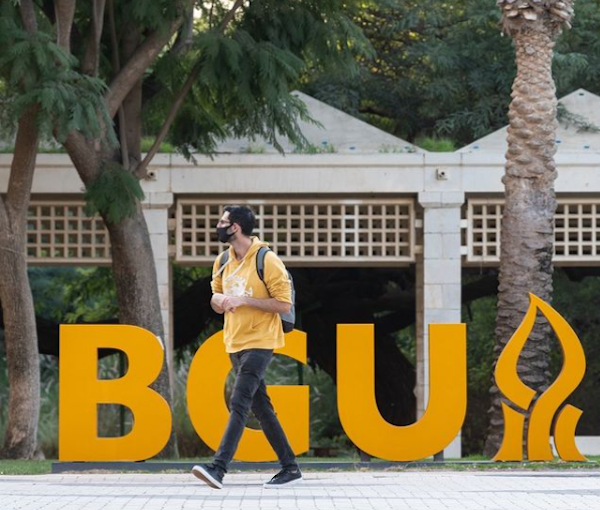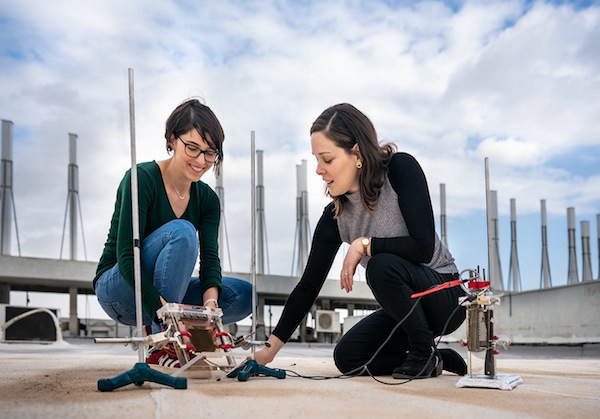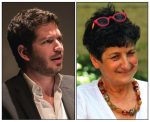The Diamond Foundation is leading the way in contributing to JWest, with an historic $25 million gift – and community donors have matched this gift with another $25 million.
The Diamond Foundation’s matching gift is the first philanthropic contribution to the project and it is the largest donation ever made by the Diamond Foundation. Completing the match means $50 million toward the JWest capital campaign target of $125-plus million.
Alex Cristall, chair of the JWest capital campaign, had this response: “I want to thank the Diamond Foundation for this transformational gift. A project of this magnitude will not be possible without the tremendous generosity demonstrated by the Diamond Foundation, as well as philanthropic support from the community at large. It is our hope that the Diamond Foundation’s incredible community leadership will serve as inspiration, and we are now calling on others to work with our team to champion this project in an equally impactful way.”
The Diamonds’ gift will have a significant impact on the plans for JWest, providing a social, cultural, recreational and educational asset for all. This is the most extensive project in the history of the Jewish community in Western Canada and it is estimated to cost more than $400 million. Bringing it to life will require philanthropy, government funding and astute financing.
Gordon and Leslie Diamond, who are honorary JWest campaign co-chairs and members of the Diamond Foundation’s board, shared: “We are pleased to be the first family to make a significant contribution to JWest’s capital campaign. Our family has called Vancouver home for almost a century, and we have always believed in contributing whatever we can to ensure there is a bright future for our children and their children.”
The announcement builds on the $25 million funding provided in 2021 by the B.C. government.
“Mazal tov! I’m so pleased that our government’s shared mandate commitment of $25 million and a $400,000 investment in redevelopment planning has been bolstered with philanthropic support from the Diamond Foundation and community,” said Melanie Mark, Hli Haykwhl Ẃii Xsgaak, minister of tourism, arts, culture and sport. “These generous contributions underscore the importance of a renewed Jewish Community Centre to 22,590 Jews and all people living in this community. It speaks to the power of working together to shine a light on our province’s diversity and inclusion.”
The new space, once complete, will deliver a state-of-the-art community centre, expanded space for the Vancouver Holocaust Education Centre, double the current number of childcare spaces, expanded seniors’ programming, a new theatre, a relocated King David High School and two residential towers that will provide mixed-use rental housing (a portion of which will be below-market rates).
“JWest is the amalgamation of decades of work, and the fact that we saw our gift matched so quickly sends a clear signal that the community stands behind this project,” said Jill Diamond, executive director of the Diamond Foundation. “The Diamond Foundation has had a unifying focus to assist and advocate for initiatives in the Vancouver area that help improve the quality of people’s lives. The impact JWest will have on the Jewish community and the surrounding Oakridge community is undeniable.”
* * *
The Louis Brier Jewish Aged Foundation has added two new members to its board of directors: Mervyn (Merv) Louis and Michelle Karby. They join an impressive group of volunteers, who for the past decades, have donated both their time and funds to care for the elderly of the Vancouver Jewish community.
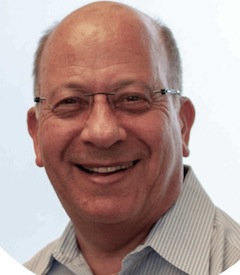
Louis, a certified public accountant, emigrated with his family from South Africa to Canada in December 1978 and joined a small accounting firm in Vancouver. In the summer of 1979, the firm was acquired by Grant Thornton LLP. In 2016, Louis retired as a partner of Grant Thornton LLP, where he worked for 38 years, of which 33 were as a partner specializing in audit, accounting and business advisory services. Louis advised and worked with clients in many different industries, including manufacturing and distribution, real estate investments and construction, entertainment, and professional practitioners.
After his retirement from Grant Thornton LLP, Louis worked as the chief financial officer of Plotkin Health Inc. and MacroHealth Solutions Limited Partnership until retiring again, in August 2020. During these years, he successfully helped merge a U.S. partnership and a Canadian company to form the parent partnership of MacroHealth Solutions Ltd. Partnership, a medical cost management and solutions provider in North America.
Louis has been married for 46 years and has two sons. He and his wife love to travel and are particularly fond of cruises; they have toured North America, Europe, Asia, Australia and Southern Africa. Louis is an avid sports fan and, while his playing days are over, he loves watching all sports, notably hockey, golf and rugby.
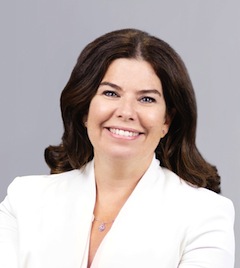
Karby is an experienced wills, estates, trusts and corporate lawyer heading up the wills and estates group at Owen Bird Law Corp. She helps clients plan, build and protect their legacies. Prior to developing her expertise in this area, Karby spent many years in and out of a courtroom honing her skills as a commercial litigator.
While born and raised in Vancouver, Karby’s adventurous spirit and love of travel translated into 18 years studying and working in places that included Montreal, Toronto, Israel, Cape Town, Melbourne and Sydney. Now settled in Vancouver with her husband and two teenage sons, Karby enjoys the beautiful natural environment, being close to her family and giving back to the community that she grew up in.
* * *
Kimberley Berger has joined Jewish Federation of Greater Vancouver as its new outreach worker in the regional communities. In particular, she will focus on White Rock, South Surrey and New Westminster.
Berger has worked in the nonprofit sector for more than 30 years, focusing on community development and family support. She has held many roles, ranging from frontline work to executive director of South Vancouver Family Place. She also dedicates time to supporting parents whose children are undergoing cancer treatment at B.C. Children’s Hospital with the West Coast Kids Cancer Foundation.
Berger believes that a strong sense of connection makes both individuals and communities more resilient. Building relationships is central to her role at Jewish Federation and in her own personal life with her family of four in East Vancouver.
* * *
This year, the Isaac Waldman Jewish Public Library raised more than $30,000 for the library. These funds will help it purchase new books and supplies for programs. Thank you to all of the Friends of the Library, and to the volunteers who helped make the fundraising a huge success.
* * *
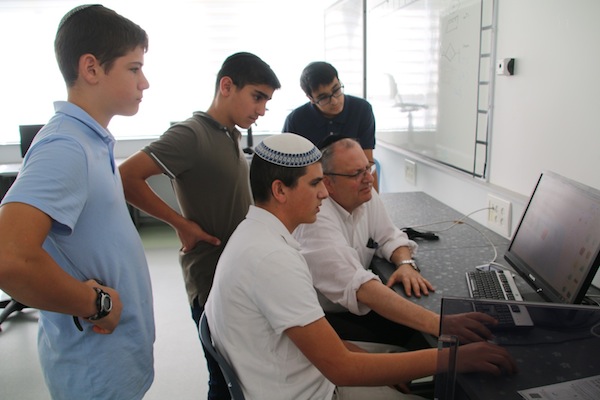
The Israeli Ministry of Education has granted Boys Town Jerusalem an Award for Excellence. The school ranked in the top 10% of the 838 high schools examined over the 2021-22 academic year.
In releasing its findings, the Israel Ministry of Education cited Boys Town Jerusalem (BTJ) for reaching outstanding achievements in the academic and social realms, as well as for instilling crucial ethics and values. BTJ principal Yossi Cohen noted that the prize reflects the ministry’s findings of the extraordinary efforts by BTJ instructors to spur students to reach a high academic level, avoid dropout and advance to Israel Defence Forces enlistment and higher education.
This marks the third time in the past decade that Boys Town Jerusalem has been awarded the prize for excellence, and the first time in which the school has reached the top-echelon rank. The Ministry of Education Award for Excellence includes a monetary reward for teachers among the highest-scoring schools.
In saluting BTJ’s instructors, Cohen stressed the COVID-related hardships over the past two years, which have demanded exceptional efforts to keep students focused and excelling despite the increased illness, poverty and strife they face at home.
* * *

A ceremony dedicating the new home of the Israel Defence Forces (IDF) Communications Branch School for Software and Cyber Security was held in August at the Advanced Technologies Park (ATP) located at Ben-Gurion University of the Negev (BGU).
BGU president Prof. Daniel Chamovitz, IDF chief-of-staff Lt.-Gen. Aviv Kochavi, head of the communications branch Col. Eran Niv, Be’er Sheva Mayor Ruvik Danilovich and other officials and guests were in attendance.
The school’s new location will enable collaboration with BGU and the high-tech companies in the ATP. The school is the first of the communications branch units to move south as part of the national move to strengthen the Negev following the government decision to move the IDF south. The branch’s new main base is under construction alongside the ATP.
The move will assist in the preservation, development and empowerment of the technological human-power in the IDF while creating opportunities and a space for new collaborations in the south.

